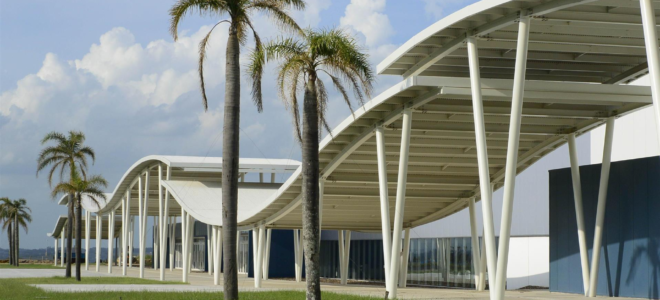The resumed third session of the ad hoc United Nations Environment Programme (UNEP) Open-Ended Working Group (OEWG 3.2) on the Science-Policy Panel (SPP) on Chemicals, Waste and Pollution Prevention is taking place in Punta del Este, Uruguay. This event is organized back-to-back with the intergovernmental meeting to consider the establishment of the new Panel. The IPCP delegation includes three board members Martin Scheringer, Miriam Diamond, and Maria Clara Starling who are providing daily meeting summaries. Policy briefs and other documents prepared by the IPCP as inputs to the process are available on the IPCP publications page.
The expectations for the resumed OEWG-3 meeting are high and low at the same time. High because this is the last round of negotiations and the goal is to have, by next Wednesday, an agreed-upon foundational document for the new Science-Policy Panel on Chemicals, Waste and Pollution Prevention. Low because the OEWG 3.1 meeting in Geneva exactly one year ago demonstrated that nothing has been finally agreed upon and any element of SPP’s set-up may still be modified or even deleted and the foundational document may come out as a weak basis that does not reflect the initial ambitions set out in the UNEA resolution 5/8. Optimism and pessimism both abound.
Today was, as an established practice from the previous OEWG meetings, a day of preparations for the official meeting beginning tomorrow. Of the IPCP team, including the IPCP board members Miriam Diamond, Martin Scheringer, and Maria Clara Starling, Martin Scheringer was at the venue, later in the day joined by Maria Clara Starling. The day began with the Youth Consultative Meeting held in the morning by the Children and Youth Major Group (CYMG). The key question was which elements of the foundational document and the rules of procedure are considered essential by the members of the CYMG and to what extent they should be mentioned explicitly in the draft working documents. Given the expectations that only a bare minimum of the text may survive the negotiations, it was agreed that not too many details should be mentioned now and that many aspects can be specified more clearly once the SPP has started its work. A motto that was coined at the meeting is, “More science, less politics!”
In the afternoon, the meeting of all Major Groups and Stakeholders took place. Major Groups (MG) present were Science & Technology, Business, Women, Children and Youth, Farmers, and NGOs. The meeting was opened by Mohamed Abdelraouf and Camilla Alexander-White from the Science & Technology Major Group. The first block of the meeting was an exchange with the OEWG-3 Chair, Gudi Alkemade. Chair Alkemade emphasized that the civil society participants present at the meeting have an important role to play by providing their wide range of knowledge and experience as input to the deliberations, but that they need to do this carefully and without overstepping their – not officially defined – mandate.
In the second block of the meeting, the participants had to deal with similar questions as the CYMG in the morning: what are the elements that are essential and have to remain in the documents and what can be done to safeguard them? As Chair Alkemade had pointed out, not too many details should be asked for; if the SPP is established at the end of the week, it will be a “baby”, not a “grown-up person”, meaning that many elements will have to be specified later on.
Then, the main question of the MG meeting, which took up a large part of the afternoon, was if and how formal participation of civil society groups or non-governmental organizations in the work of the SPP can be accomplished. Opinions were varied; ambitious and optimistic views were confronted with cautious and pessimistic views. Jill Hanna, Global Alliance on Health and Pollution, pointed out that there is no clear precedent for formal participation of civil society groups. Given the high uncertainty surrounding the process of the coming days, all views were legitimate and also valuable as input to the deliberations. The discussions were respectful and constructive. The participants agreed that one single statement, brief and supported by all MGs present, should be prepared and delivered to the plenary on the next day. Camilla Alexander-White took the lead in drafting this statement, supported by Aseel Abo-Taleb and Olga Skaredina, CYMG; Melissa Wang, NGO MG, and Martin Scheringer.
At the end of the meeting, the logistics of the MG meetings for the coming week were set up. On each day, a MG meeting will be held from 9 to 10, and chairs for these meetings were nominated.
—
The IPCP has developed several documents as inputs to the process, these are available on the IPCP publication page.
IISD coverage: https://enb.iisd.org/oewg3-2-science-policy-panel-contribute-sound-management-chemicals-waste-prevent-pollution
